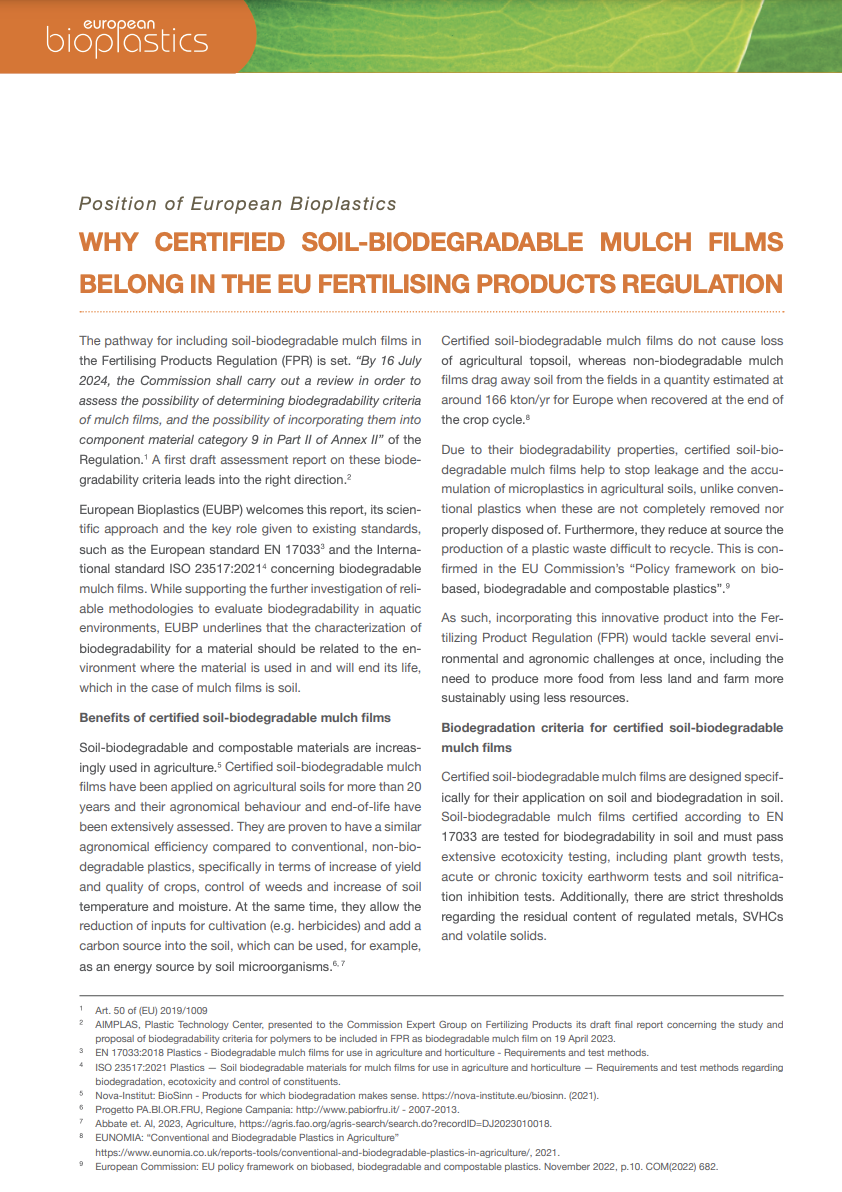Soil-biodegradable and compostable materials are increasingly used in agriculture. Certified soil-biodegradable mulch films have been applied on agricultural soils for more than 20 years and their agronomical behaviour and end-of-life have been extensively assessed. They are proven to have a similar agronomical efficiency compared to conventional, non-biodegradable plastics, specifically in terms of increase of yield and quality of crops, control of weeds and increase of soil temperature and moisture. At the same time, they allow the reduction of inputs for cultivation (e.g. herbicides) and add a carbon source into the soil, which can be used, for example, as an energy source by soil microorganisms.
Certified soil-biodegradable mulch films do not cause loss of agricultural topsoil, whereas non-biodegradable mulch films drag away soil from the fields in a quantity estimated at around 166 kton/yr for Europe when recovered at the end of the crop cycle.
Due to their biodegradability properties, certified soil-biodegradable mulch films help to stop leakage and the accumulation of microplastics in agricultural soils, unlike conventional plastics when these are not completely removed nor properly disposed of. Furthermore, they reduce at source the production of a plastic waste difficult to recycle. This is confirmed in the EU Commission’s “Policy framework on biobased, biodegradable and compostable plastics”.
As such, incorporating this innovative product into the Fertilising Product Regulation (FPR) would tackle several environmental and agronomic challenges at once, including the need to produce more food from less land and farm more sustainably using less resources.
